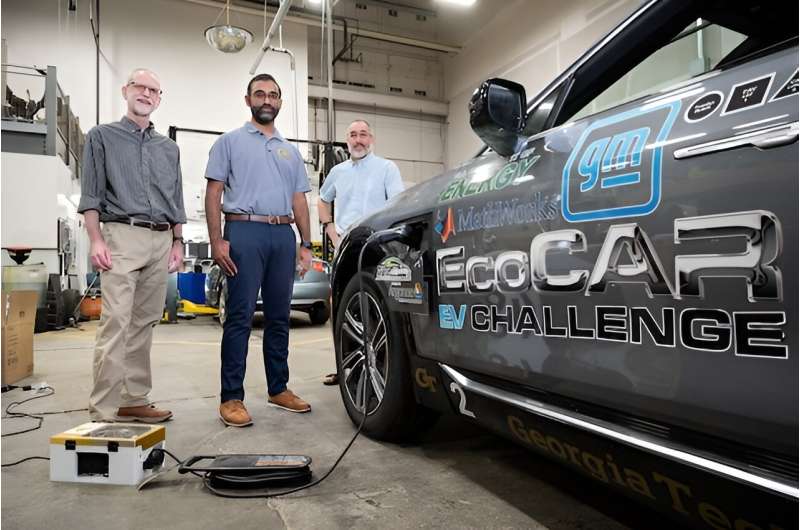As the electric vehicle (EV) market surges, the electric grid faces unprecedented challenges. Researchers at the Georgia Institute of Technology have developed a revolutionary smart-charging system that not only reduces grid stress but also empowers consumers to customize their charging preferences. This innovative technology could help accelerate the EV revolution and secure a sustainable energy future. Electric vehicles, electric grid

Navigating the EV Influx: Optimizing Grid Capacity
The rise of electric vehicles is a significant triumph for the environment, but it also poses a formidable challenge for the electric grid. As more and more EVs hit the roads, the demand for electricity is skyrocketing, putting a strain on the existing infrastructure. Researchers at the Georgia Institute of Technology have developed a groundbreaking smart-charging system that offers a solution to this problem.
Their optimization-based approach not only helps reduce grid stress but also empowers users to customize their charging preferences. By strategically distributing the charging load over time, the system can minimize the impact on the grid and ensure that the network can handle the influx of EVs without costly infrastructure upgrades. The team’s innovative algorithms predict household power usage and utilize random timing to effectively distribute the charging load, ensuring that the number of EVs in a community can increase without overwhelming the local utility.
Empowering Consumers: Customizable Charging Preferences
The smart-charging system developed by the Georgia Tech researchers offers consumers unprecedented control over their charging experience. Through a user-friendly app, EV owners can customize four key aspects of the charging process: cost, carbon-free energy, charging speed, and battery health.
By adjusting the slider widgets in the app, consumers can prioritize their preferences. For instance, someone who values speed can set the charging speed slider to the right, ensuring their vehicle is charged as quickly as possible. On the other hand, someone who is environmentally conscious can prioritize charging with renewable energy sources like wind and solar. The system’s algorithms then determine the optimal charging schedule based on the user’s preferences, seamlessly integrating with the grid to minimize impact and maximize benefits for the consumer.
Scaling Smart Charging: Collaborations and Future Opportunities
The Georgia Tech team is not content to simply showcase their smart-charging technology on an individual level. They have ambitious plans to expand its reach and demonstrate its potential on a larger scale.
The researchers are exploring collaborations with EV charging station companies and public school systems that use electric buses. By implementing their algorithms in these commercial settings, they aim to showcase how smart charging can automatically reduce fleet charging costs and optimize grid utilization. Additionally, the team is actively reaching out to auto manufacturers, hoping to have their technology incorporated directly into EVs, allowing users to set their charging preferences right from their dashboard.
The ultimate goal is to license the smart-charging algorithm technology and pave the way for widespread adoption. By demonstrating the tangible benefits of smart charging, the researchers hope to empower consumers, companies, and school systems to embrace this innovative solution and contribute to a more sustainable energy future.
